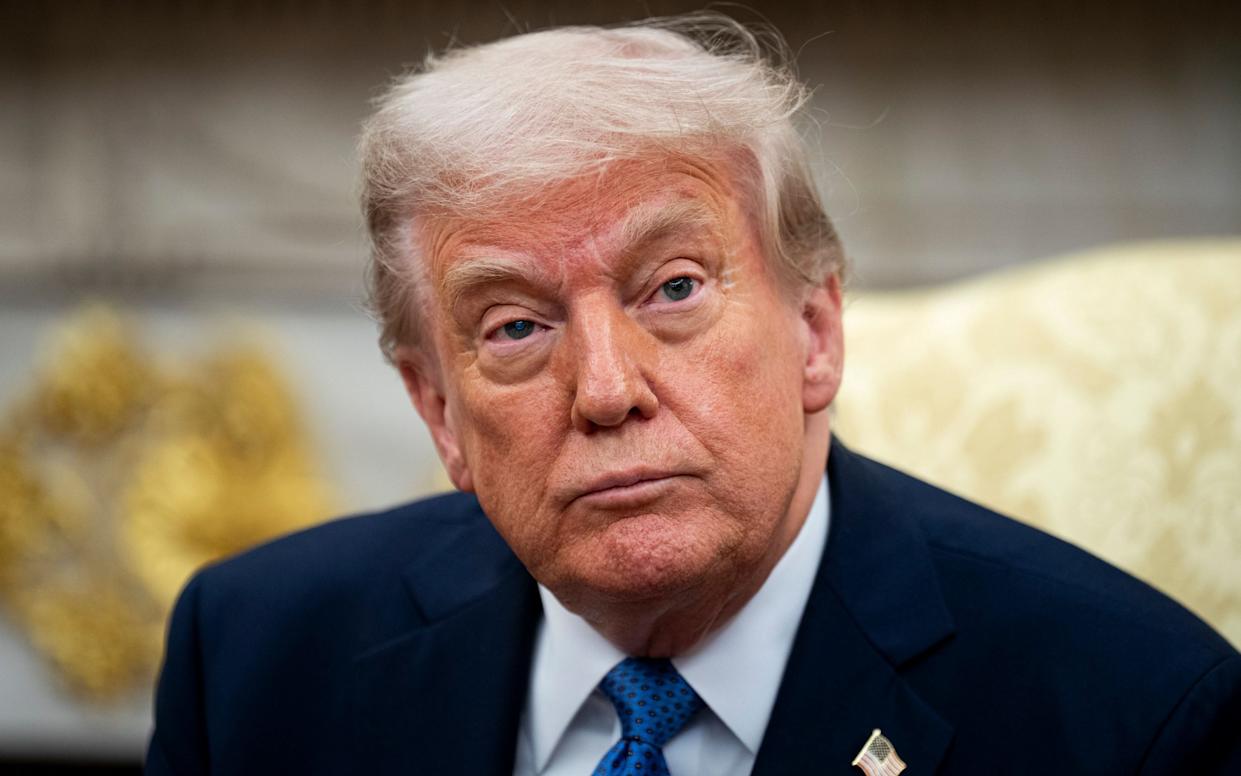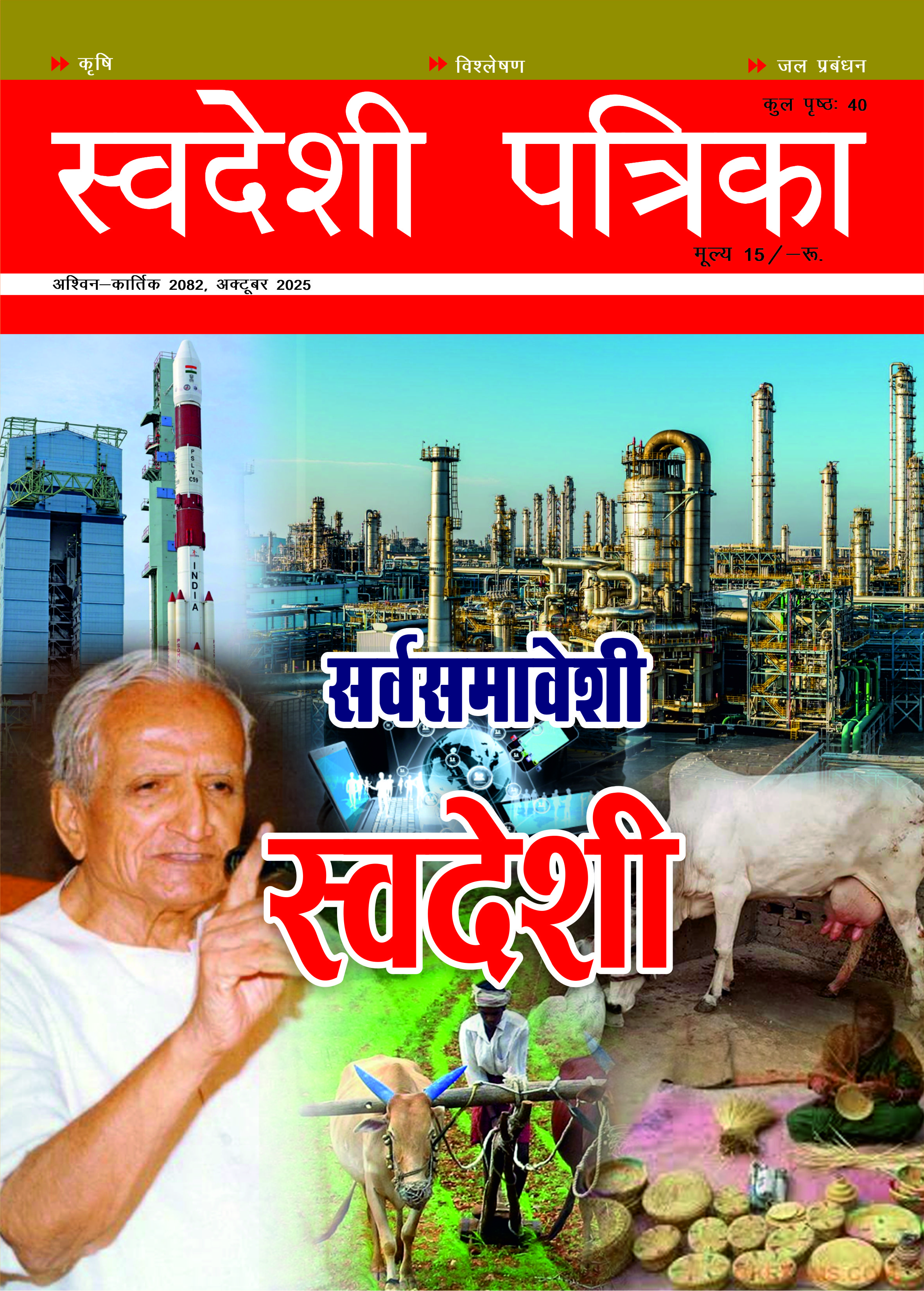
Trump Ducks
The Third Way needs deep discussion where the goods, services, knowledge, capital, and labor can see a free flow among the human civilization. — Alok Singh
Ducking the agenda, ducking the questions, and ducking the bigger picture is something that is not unusual for politicians. It’s their compulsion to do so. It’s part of their strategy to do so. It’s the demand of the situations to do. It’s the propaganda demand to do so. It’s the narrative necessity to do so. It’s the tradeoff to do so. It’s the changes in priorities that need to be done. It’s the upcoming cascading repercussions to do so. Despite that, the presentations have to be such that the ducked promises, commitments, and questions are all as standard and are in the interests of strengthening the committed promises to their respective voters.
If everyone agrees to duck something, it’s not trouble; it’s labeled a bold move. The official dismantling of institutions like the World Trade Organization (WTO) can be a celebrated bold move. The trade war, tariff adjustments, and readjustments, postponements of adjustments and readjustments, reviews and rejoinders, talks and further talks, can be a regular part of trade diplomacy. Every player is free to do so. The game is fair as the requirements are different and time-varying.
So, such announcements, counter announcements, and midterm announcements can’t be labeled as duckling behavior. It’s fair behavior, and in a true sense, it has democratized the world trade. Any country is free to do bilateral trade agreements, multilateral trade agreements, product-wise trade agreements, geographical region-wise trade agreements, and even currency-wise trade agreements. These trade agreements will be proxies for barter systems. The arbitrage opportunities in trade practices will be challenging in the coming days.
The world is transiting through a phase in search of genuinely fair trade practices. This search will conclude with the formulation of a new trade and economic policy. The initial light can be found in the Third Way, as proposed by DattopantThengdi Ji. Abundance will have a crucial role to play, but the price war and economies of scale model will be on the back foot.
The shorter shelf life of technology is discouraging manufacturing companies from investing their capital the way they could have invested two decades ago. Today, by the time a new manufacturing plant comes up, the product for which it has been designed itself might become obsolete. For example, many camera companies are no longer in business, and even if they are in business, they are not in the business of manufacturing cameras. Still, they manufacture other products, sometimes related products like printers or sometimes wholly unrelated products.
This shorter and shorter technological shelf life is the change agent for decentralizing manufacturing companies, small-capacity manufacturing units, and mass customization by manufacturing businesses. This will also promote the culture of environmentally friendly practices like reuse, recycling, and repair, as today’s manufacturing practices have resulted in consumers preferring to replace rather than repair.
So, whoever controls the technology is the king, and whoever imposes blind tariffs is not the king. Every country’s economy can be sustainable, but if the intent is to be at the higher pecking order, then all these trade proxies come into play. Whether they are relevant or not is a different matter.
Technology in particular and economic technology in general, and again, those technologies that have the power of volumes, the power of economies of scale, and direct interaction with the world’s population, are going to be the crucial factors. Today, economies of scale have shifted from manufacturers and international currency to service providers. It’s Alphabet, Amazon, Apple, Microsoft, Meta, and Tesla-Starlink, whose portfolios of products are well synchronized as goods and services to control the world.
The Chinese are not their consumers; hence, Trump ducked the 2 April 2025 announcements for all, soft for a few, and harsher for the Chinese. Today, the Chinese process, which accounts for about 90 percent of the world’s rare earth minerals, developed Deep Seek as an artificial intelligence (AI) product and visualized BRICS currency as a substitute for the US dollar. However, the world is not comprised of only the US and China. EU, Japan, Australia, Bharat, and many more are there.
The pillars one and two tools of base erosion and profit shifting (BEPS) proposals of the Organization for Economic Co-operation and Development (OECD) member countries come into the picture. Pillar 1 is about taxing the company in the jurisdiction where the sales of the goods or services are realized despite the goods and services provider not having a physical presence in the country where the actual sales are realized. Pillar 2 is about taxing the minimum agreed taxes in all the jurisdictions where the operations and sales happen. This agreement will be helpful to all the countries in democratizing the tax system, and the BEPS will be checked. The Trump administration has ducked this important issue in global wealth sustainability and the share of sovereign economies in wealth generation. The Trump administration also ducks the problems related to financial commitments for climate change.
The immediate concerns for the sustainable goals of planet Earth are not WTO and trade tariffs but climate-related commitments and the OECD framework of tax sharing among nations.
Ultimately, it’s the Bhartiya philosophy of shared wealth, whether it be financial, technological, natural, knowledge, or anything that will finally triumph. The days of decentralization in manufacturing have arrived, and the days for devolution in the services sector are awaited. The OECD framework is an essential tool for achieving this and marching ahead. The gross domestic product and trade balances are insufficient to make any country great again. It’s the happiness that matters. The constituents of joy are an invincible security system, health, education, food, and spiritual assets. The Third Way needs deep discussion where the goods, services, knowledge, capital, and labor can see a free flow among the human civilization. Trumps intent to care for manufacturing sector rather than stock market indices, whatsoever be the reasons, reflects something that matches with guidelines of Hindu economics authored by Dr. MG Bokare Ji.
(Alok Singh has a doctorate in management from the Indian Institute of Management Indore and promoter of Transition Research Consultancy for Policy and Management.)


